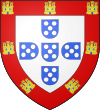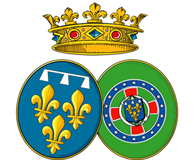Nearly 2,000 want to include Duke of Bragança in the State protocol
Since Saturday, an electronic public petition has brought together nearly 2,000 signatures of citizens who want the Duke of Bragança included in the State protocol, through the amendment to the 2006 legislation.
Among the 1,770 petitioners are the mayor of Porto, Rui Moreira, Lobo Xavier, and many other figures of CDS-PP and PSD, but also the political scientist Adelino Maltez or the writer Rui Zink, as well as the historian Jaime Nogueira Pinto and the businessmen Paulo Azevedo and Paulo Teixeira Pinto.
"The current law is from 2006, and when it was discussed, this issue has already been put in place and a version has finally been approved and completely excluded. After 10 years, there were institutions and people who thought it would be good to raise the issue because there are some difficulties Protocols when d. Duarte Pio, who is regularly invited to events, in his framework, "said to Lusa one of the promoters of the petition" Inclusion of the Duke of Bragança in the Law of the State Protocol, "Tomás Moreira.
The head of the royal association, Causa Real, a 59-year-old businessman, said the objective is to be discussed in the Assembly of the Republic. The petitions, once admitted in São Bento by a parliamentary committee, are handed over to a Member to take the appropriate steps. If you have more than 1,000 signatures, the authors have to be heard by Parliament. After 4,000, the subject has to be taken to plenary.
"As head of the House of Braganza, [Notes: Duarte Pio] has been invited to participate in official events, important moments in the life of the State, especially when involving the participation of world royalty in ceremonies of historical or cultural celebration, in the Foreigner, as a representative of the Portuguese community, in events of a cultural, humanitarian or religious nature, "is justified in the text.
The petition claims to be "recognition by the Portuguese State that the head of the House of Bragança is, even under the current Republican regime, the legitimate successor of the kings of Portugal" and that "the maturity of the republican regime should allow the formalization of this relationship , To include treatment due to the Duke of Bragança in the Law of Precedence of the Protocol of the Portuguese State, "as" already happens with the foreign and international entities, diplomatic, religious, university and social partners. "
Another former mayor, Carmona Rodrigues, current and former deputies and Christian Democratic leaders like Diogo Feio, Nuno Melo, Telmo Correia, Mota Soares, but also journalists and writers Miguel Esteves Cardoso, Eduardo Cintra Torres and Henrique Raposo, as well as the cook Hélio Loureiro, figure among the list of subscribers.
SIC Notícias | Quase 2 mil querem incluir duque de Bragança no protocolo de Estado






